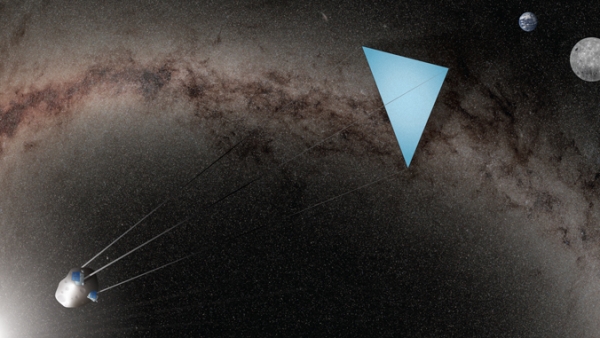Earth is rapidly warming and scientists are developing a variety of approaches to reduce the effects of climate change. István Szapudi, an astronomer at the University of Hawaiʻi Institute for Astronomy, has proposed a novel approach—a solar shield to reduce the amount of sunlight hitting Earth, combined with a tethered, captured asteroid as a counterweight. Engineering studies using this approach could start now to create a workable design that could mitigate climate change within decades.
The paper, “Solar radiation management with a tethered sun shield,” is published in Proceedings of the National Academy of Sciences.
One of the simplest approaches to reducing the global temperature is to shade the Earth from a fraction of the Sun’s light. This idea, called a solar shield, has been proposed before, but the large amount of weight needed to make a shield massive enough to balance gravitational forces and prevent solar radiation pressure from blowing it away makes even the lightest materials prohibitively expensive. Szapudi’s creative solution consists of two innovations: a tethered counterweight instead of just a massive shield, resulting in making the total mass more than 100 times less, and the use of a captured asteroid as the counterweight to avoid launching most of the mass from Earth.
Read more at University of Hawaii at Manoa
Image: (Photo credit: Brooks Bays/UH Institute for Astronomy)


